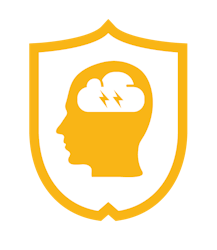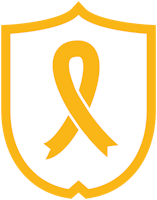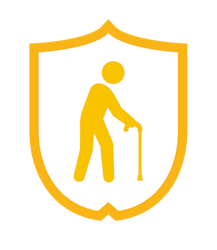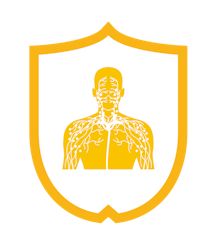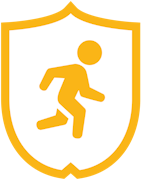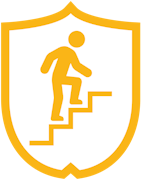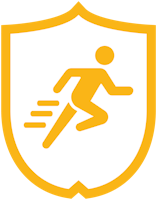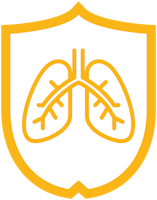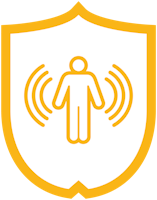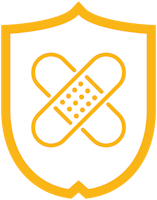Summit Certificate Series
Looks great to employers and on resumes. Only for Summit Subscribers.

Certificate Series
Summit's Certificate Series provide a way for therapists to show enhanced understanding of a certain practice area by completing multiple continuing education courses. Summit's expert course content team has selected only top-rated instructors and courses for inclusion ensuring the highest quality learning experience. By progressing through these curated courses, therapists will deepen their skills and improve their impact on patients.
For Therapists
As a therapist, you can confidently approach a practice area and ensure that your patients get the highest quality of care. Your employer will also appreciate your desire to formalize your understanding of a topic and your efforts to increase your therapy skills and outcomes.
Each Summit Certificate Series comes with a customized certificate to showcase your new achievement (in addition to standard, per-course CE certificates) and a new Summit account badge. Both your certificate and badge can be downloaded, shared on social media, and placed on resumes!


For Administrators
We understand efficiently serving patients with your most qualified therapists (thereby creating the best outcomes) is your number one goal. Ensure every therapist on your team is working from the same base of knowledge by having them complete all applicable Summit Certificate Series.
While taking a certificate series, your therapists can earn both required CE credits and, after series completion, a custom certificate and account badge noting their achievement.
We also encourage you to speak with our Group Learning team to gain access to our free set of administrator tools. Our Group Learning Platform provides a full view of your team's licenses, CE courses completed (from any provider), upcoming scheduled courses, certificate series status, and much more! Schedule a demo via email or by calling (615) 647-8486.
More CE Courses
400+
New Courses Annually
600+
On-Demand Courses
200+
Live Webinars Annually
50+
Live Streams Annually
500+
In-Person Courses Annually
Available Certificate Series
Home Health
Spanning 13 hours of content, this in-depth look at Home Health covers home modifications, innovative rehab solutions, and minimizing fall risks. This Summit Certificate Series is a must-have for therapists working in and around the home care setting to gain deeper knowledge of the medical perspective, functional perspective, ADLs, and mobility requirements.
Courses included:
- 6 Hour Online Video: "OASIS-E and Value-Based Purchasing" taught by Timothy Dunn, PT, DPT, GCS, COS-C, CEEAA
- 2-Hour Online Video: "Practical DME and Home Modifications for Aging Adults" taught by Melinda Butler Henderson, OTR/L, OTD, BCPA, QCP
- 3-Hour Online Video: "A Collaborative Approach to OASIS-E" taught by Andrew Morgan, PT, DPT, MBA, COS-C
- 2-Hour Online Video: "Home Health Management of Hoarding Disorder" taught by Andrew Morgan, PT, DPT, MBA, COS-C
Read full course descriptions, highlights, learning objectives, and instructor bios here
Stroke
Combining three popular stroke courses into a 18-hour series, therapists will look at assessment, treatment, and overcoming challenges in stroke rehab and recovery. Each course is geared to further equipping therapists with immediate take-homes to impact patients the very next day.
Courses included:
- 6-Hour Online Video: "Stroke Recovery Strategies" taught by Anysia Ensslen-Boggs, Ed.D., M.S., CCC-SLP
- 6-Hour Online Video: "The Latest Rehab Strategies for Stroke Recovery" taught by Naseem Chatiwala, PT, DPT, MS, NCS
- 6-Hour Online Video: "Evidence-Based Assessment and Treatment for Stroke Recovery" taught by Ron Sheppard, OTD, OTR/L, C/NDT, FABDA
Read full course descriptions, highlights, learning objectives, and instructor bios here
Cancer Rehab
Cancer and its treatment regimens can cause a host of complications for therapy interventions and require new considerations to achieve desired outcomes. These five courses, together spanning 14 hours, approach both short- and long-term oncology rehab through risk assessment, side effects of chemotherapy, lymphedema considerations, and exercise prescription.
Courses included:
- 2-Hour Online Video: "Rehabilitation Approaches to Better Manage Cancer Pain" taught by Nicole Scheiman, DrOT, MHS, OTR/L, CLT-LANA, CES, CKTP, CEES-Advanced, CSST, CDCS, CORE
- 2-Hour Online Video: "Nutrition Management for Cancer Patients" taught by Jennifer Darby PT, DPT, GCS, CCN, CPAHA, CEEAA
- 2-Hour Online Video: "Rehabilitation Considerations for Head and Neck Cancer" taught by Nicole Scheiman, DrOT, MHS, OTR/L, CLT-LANA, CES, CKTP, CEES-Advanced, CSST, CDCS, CORE
- 2-Hour Online Video: "Rehabilitation Considerations in Geriatric Oncology" taught by Nicole Scheiman, DrOT, MHS, OTR/L, CLT-LANA, CES, CKTP, CEES-Advanced, CSST, CDCS, CORE
- 6-Hour Online Video: "Oncology Rehabilitation" taught by Nicole Scheiman, DrOT, MHS, OTR/L, CLT-LANA, CES, CKTP, CEES-Advanced, CSST, CDCS, CORE
Read full course descriptions, highlights, learning objectives, and instructor bios here
Geriatric
Combining four comprehensive courses focused on geriatric assessment and rehabilitation into a 16-hour series, participants an in-depth look at improving assessment, functional tasks, and optimizing overall quality of life for elderly patients.
Courses included:
- 6-Hour Online Video: "Functional Geriatrics" taught by Melinda Butler, OTR/L, OTD
- 6-Hour Online Video: "Fall Prevention Strategies" taught by Brian Trzaskos, PT, LMT, CSCS, CMP, MI-C
- 2-Hour Online Video: "Exercise in Geriatric Rehabilitation" taught by Nicki Dawson, PT, PhD, GCS
- 2-Hour Online Video: "Strength Training in Geriatric Rehabilitation" taught by Paul Frizelle, PT, DPT, MS, OCS, MTC, CSCS, PES, CES
Read full course descriptions, highlights, learning objectives, and instructor bios here
Vestibular
According to the Vestibular Disorders Association, nearly 100 million Americans have experienced a vestibular problem at some point in their lives. In these three courses spanning 14-hours practicing healthcare professionals will leave this course series with a clear understanding of normal functioning of the inner ear's vestibular system, the pathophysiology of BPPV and its variants, and application of a simple clinical algorithm to help make differential diagnoses of BPPV.
Courses included:
- 2-Hour Online Video: "Assessment and Treatment of Benign Paroxysmal Positional Vertigo" taught by Naseem Chatiwala, PT, DPT, MS, NCS
- 6-Hour Online Video: "Evaluation and Treatment of Vestibular Disorders" taught by Jean McConnell, MS, PT, ATC
- 6-Hour Online Video: "Vestibular Rehab & Balance Training" taught by Karen Hogan-Curran, PT, DPT
Read full course descriptions, highlights, learning objectives, and instructor bios here
Pelvic Health
This three-part, 18-hour course series will focus on pelvic floor dysfunction, Urinary Incontinence, and core stability. Preparing rehabilitation professionals to apply their muscular expertise to improve the strength and mobility of the pelvic floor, effectively improving the function of multiple systems and addressing common issues associated with pelvic health.
- 2-Hour Online Video: "Integrating the Pelvic Floor in Orthopedics" taught by Sarah Petrich, PT, DPT, PRC, NCPT
- 2-Hour Online Video: "Assessing Abdominal Pressure and Breathing in Pelvic and Back Pain Patients" taught by Jill Cramp, PT, DPT, PRC, WCS
- 2-Hour Online Video: "Comprehensive Adult Pelvic Health Rehabilitation" taught by Selena Pemberton, MOT, OTR/L, RYT200hr
- 6-Hour Online Video: "Strengthening Core Stability" taught by Lori Duncan, DPT, MTC, CPT
- 6-Hour Online Video: "Functional Pelvic Floor Training for Weakness, Pain, and Dysfunction in Men, Women, and Older Adults" taught by Catherine Lewan, DPT, CYT
Read full course descriptions, highlights, learning objectives, and instructor bios here
Lymphedema
Clinicians often encounter patients who are affected by edema, lymphedema, and general swelling. A therapist needs to understand how to differentiate types of edema, and why proper edema management is critical to optimal rehab outcomes. This 10 hour series will focus on to improve the way therapists treat this patient population and overcome the unique challenges associated with the issue through various phases of treatment.
Courses included:
- 2-Hour Online Video: "Edema Bootcamp" taught by Nicole Scheiman, DrOT, MHS, OTR/L, CLT-LANA, CES, CKTP, CEES-Advanced, CSST, CDCS, CORE
- 2-Hour Online Video: "The Current Landscape of Assessment and Treatment for Lymphedema Patients" taught by Dana Davis, PT, DPT, CWS
- 6-Hour Online Video: "Oncology Rehabilitation" taught by Nicole Scheiman, DrOT, MHS, OTR/L, CLT-LANA, CES, CKTP, CEES-Advanced, CSST, CDCS, CORE
Read full course descriptions, highlights, learning objectives, and instructor bios here
Adolescent Athlete
Young athletes may be subjected to many different types of injuries because of playing their sport. Injuries to the musculoskeletal system in adolescence can have long-term repercussions including decreased activity, and long-term disability and health quality. This six part, 12-hour certification will focus on the most current evidence for the management of these injuries along with evidence-based manual therapy, neuromuscular retraining, and therapeutic exercise interventions.
- 2-Hour Online Video: "Foot & Ankle in the Adolescent Athlete" taught by Paul Frizelle, PT, DPT, MS, OCS, MTC, CSCS, PES, CES
- 2-Hour Online Video: "Evaluation & Treatment of the Adolescent Athlete Elbow & Wrist" taught by Paul Frizelle, PT, DPT, MS, OCS, MTC, CSCS, PES, CES
- 2-Hour Online Video: "Evaluation & Treatment of the Knee in the Adolescent Athlete" taught by Paul Frizelle, PT, DPT, MS, OCS, MTC, CSCS, PES, CES
- 2-Hour Online Video: "Evaluation and Treatment of the Spine in the Adolescent Athlete" taught by Paul Frizelle, PT, DPT, MS, OCS, MTC, CSCS, PES, CES
- 2-Hour Online Video: "Evaluation and Treatment of the Hip in the Adolescent Athlete" taught by Paul Frizelle, PT, DPT, MS, OCS, MTC, CSCS, PES, CES
- 2-Hour Online Video: "Treating the Shoulder in the Adolescent Athlete" taught by Paul Frizelle, PT, DPT, MS, OCS, MTC, CSCS, PES, CES
Read full course descriptions, highlights, learning objectives, and instructor bios here
Fall Prevention
This four part, 20-hour series will focus on better recognition of fall risk factors as well as research-driven and clinically proven interventions to improve patient quality of life and functional independence. The certification content will outline the current best practices and interventions available to healthcare professionals in managing falls and aid in the prevention of future falls.
Courses included:
- 6-Hour Online Video or Live Session: "Fall Prevention Strategies" taught by Brandi Singleton, PT, DPT, CCI
- 6-Hour Online Video or Live Session: "Fall Prevention Strategies" taught by Brian Trzaskos, PT, LMT, CSCS, CMP, MI-C
- 2-Hour Online Video: "Comprehensive Management of Falls in Older Adults" taught by Nicki Dawson, PT, PhD, GCS
- 6-Hour Online Video: "How Classes of Medications Impact Falls" taught by Lisa Milliken, MA, CCC-SLP, FNAP, CDP
Read full course descriptions, highlights, learning objectives, and instructor bios here
Hand Therapy
This 13-hour series will assist therapists in developing their skills in testing differential diagnosis and developing an understanding of pathology leading to dysfunction. Attendees will be able to identify tests needed for a number of differential diagnoses to enhance patient care and their knowledge as it relates to hand therapy preparation.
- 3-Hour Online Video: "Providing Effective Hand Therapy" taught by Catherine Valentino, OTR/L, OTD, MHSc, MAAL, BS
- 2-Hour Online Video: "Hand Therapy Differential Diagnosis and Testing to Lead Effective Treatments" taught by Catherine Valentino, OTR/L, OTD, MHSc, MAAL, BS
- 6-Hour Online Video: "Upper Extremity Orthotic Fabrication" Catherine Valentino, OTR/L, OTD, MHSc, MAAL, BS
- 2-Hour Online Video: "Common Orthotics for the Hand and Wrist" taught by Catherine Valentino, OTR/L, OTD, MHSc, MAAL, BS
Read full course descriptions, highlights, learning objectives, and instructor bios here
Sports Performance and Rehab
People are more active than ever and are participating in athletic and recreational activities ranging from running to extreme sports resulting in a number of orthopedic injuries. Expectations in the rehabilitation of these injuries are to utilize an evidence-based approach to develop appropriate exercise programs. This 12-hour comprehensive certification will cover common sports-related injuries and effective treatment for return to sport.
Courses included:
- 3-Hour Online Video: "Advanced Concepts in ACL Rehabilitation" taught by Joseph Villena, PT, MPT, OCS, CSCS, COMT
- 2-Hour Online Video: "Evaluation of Inversion Ankle Sprains" taught by Stephen (Chris) Owens, PT, ScD, OCS, CSCS, FAAOMPT
- 6-Hour Online Video: "Assessment, Treatment, and Rehabilitation Strategies for Concussion and Mild TBI" taught by Lenore Herget, DPT, SCS, MEd, CSCS
- 1-Hour Online Video: "Running Biomechanics" taught by Joseph Villena, PT, MPT, OCS, CSCS, COMT
Read full course descriptions, highlights, learning objectives, and instructor bios here
Cardiovascular and Pulmonary
80% of adults over the age of 65 have multiple chronic conditions. This can be a difficult patient population to work with considering these patients see an average of 13 different physicians each year and have an average of 50 different prescriptions filled each year. Due to the complexity of this patient population, obtaining progressions through a therapy program can be a very daunting task. These four courses, together spanning 20 hours, approach effective assessment, treatment for patients with diabetes, hypertension, heart failure, and COPD. Pharmacologic considerations, chronic pain, and recommended exercise guidelines will be reviewed.
- 6-Hour Online Video or Live Session: "COPD, Diabetes, Heart Failure, and Hypertension" taught by Amy Shevlin, PT, MS, DPT, GCS
- 6-Hour Online Video or Live Session: "A Rehab Professional's Guide to Pharmacology" taught by Jennifer DeFeo, PhD
- 6-Hour Online Video or Live Session: "Chronic Pain Solutions" taught by Brian Trzaskos, PT, LMT, CSCS, CMP, MI-C
- 2-Hour Online Video: "ACSM Guidelines for Exercise for Special Populations" taught by Julie Barnett, PT, DPT, MTC
Read full course descriptions, highlights, learning objectives, and instructor bios here
Dementia
Over 5 million Americans are living with dementia; someone in the United States develops Alzheimer's disease every 65 seconds. This number is expected to double by 2030, and triple by 2050. Since there is no cure for dementia, this disease results in a progressive decline of cognitive and functional skills. These courses are designed for therapists and healthcare professionals so that they may improve outcomes, safety, and quality of life for individuals and their caregivers living with dementia. This 18-hour comprehensive certification will facilitate learning about functional and evidence-based techniques, interventions, and education/training strategies.
Courses included:
- 6-Hour Online Video or Live Session: Therapists Rehabilitation Strategies for Dementia Patients" taught by Anysia Ensslen-Boggs, Ed.D., M.S., CCC-SLP
- 2-Hour Online Video "Holistic Treatment of the Dementia Population" taught by Cristina Klymasz, MS, OTR/L, CBIS, RYT, CLT, MSCS
- 6-Hour Online Video or Live Session: "Achieving Functional Progression in Dementia Care" taught by Catherine Valentino, OTR/L, OTD, MHSc, MAAL, BS
- 2-Hour Online Video "Best Practice in Managing Patients with Dementia" taught by Nicki Dawson, PT, PhD, GCS
- 2-Hour Online Video "Evidence to Support Clients with Dementia" taught by Robyn Otty, OTD, OTR/L, BCPR, FAOTA
Read full course descriptions, highlights, learning objectives, and instructor bios here
Low Vision
Twelve million Americans are living with age-related macular degeneration and 3.36 million Americans are living with Glaucoma; two of the most common eye diseases resulting in low vision and blindness in older adults. Visual impairment in older adults often leads to negative impacts on overall health and significant difficulty with ADLs. This 8-hour comprehensive certification aim to add value to clinical practice and client's overall health by improving objectively measured outcomes, increasing ADL independence, preventing falls, and functional decline.
- 2-Hour Online Video: "Vision Rehabilitation for the Neurological Patient" taught by Cristina Klymasz, MS, OTR/L, CBIS, RYT, CLT, MSCS
- 2-Hour Online Video: "Low Vision Identification, Assessment, and Treatment to Maximize Functional Skills" taught by Catherine Valentino, OTR/L, OTD, MHSc, MAAL, BS
- 6-Hour Online Video or Live Session: "Assessment Strategies and Evidence-Based Solutions for Low Vision" taught by Daniel Walters, PT, DPT, GCS
Read full course descriptions, highlights, learning objectives, and instructor bios here
Total Joint Replacement
Joint replacement has become a popular option for orthopedic surgeons to help patients who suffer from arthritic pain, decreased mobility, joint stiffness, and motion loss. More people are remaining active longer and search for possible solutions to address their increasing functional limitations. An efficient system of accurate assessment, evidence-based therapeutic exercise and appropriate manual therapies will aid a patient in decreasing their pain, correcting dysfunction, and improving functional independence following a joint replacement. This 18-hour comprehensive certification will provide an evidence-based rationale for assessment and treatment techniques for postsurgical patients.
- 2-Hour Online Video: "Osteoarthritis: Non-Surgical Options vs. Joint Replacement" taught by Julie Barnett, PT, DPT, MTC
- 6-Hour Online Video: "Evidence-Based Strategies for Post-Operative Rehabilitation and Joint Replacement" taught by Chris Ellis, PT, DPT, Cert. DN
- 6-Hour Online Video or Live Session: "Evidence-Based Rehabilitation Strategies for Joint Replacement" taught by Richard Hubler, PT, DPT, OCS, FAAOMPT
- 2-Hour Online Video: "Orthopedic Regenerative Injections" taught by Julie Barnett, PT, DPT, MTC
- 2-Hour Online Video: "Evidence-Based Rehabilitation of the Total Knee Arthroplasty" taught by Andrew Morgan, PT, DPT, MBA, COS-C
Read full course descriptions, highlights, learning objectives, and instructor bios here
Shoulder
With the CDC reporting more than 13 million Americans seeking medical treatment annually, shoulder dysfunction is one of the most pervasive orthopedic conditions attended to by clinicians. However, due to the complex nature of the joint and surrounding soft tissue, treating the pain and disability of upper quadrant musculoskeletal disorders presents a challenge to even the most experienced therapists. With changes in health care and third-party reimbursement, therapists must be proactive and adequately trained in the provision of services related to the rotator cuff, impingement syndrome, idiopathic adhesive capsulitis, and other less common impairments. In the era of evidence-based treatment and client-centered care, treatment protocols and good clinical reasoning skills must be employed to treat these conditions effectively and efficiently.
- 2-Hour Online Video: "Management of Hemiplegic Shoulder Pain" taught by Naseem Chatiwala, PT, DPT, MS, NCS
- 2-Hour Online Video: "Evidence-Based Shoulder Rehabilitation" taught by Eric Bellm, PT, DPT, OCS
- 2-Hour Online Video: "Geriatric Shoulder Rehabilitation" taught by Paul Frizelle, PT, DPT, MS, MTC, PES, CES
- 6-Hour Online Video: "Shoulder Disorders" taught by Donald Earley, OTD, MA, OTRL
- 2-Hour Online Video: "Treating Shoulder Pain" taught by Darren Smith, PT, DPT
- 2-Hour Online Video: "Evaluation of the Shoulder Complex" taught by Stephen (Chris) Owens, PT, ScD, OCS, CSCS, FAAOMPT
Read full course descriptions, highlights, learning objectives, and instructor bios here
Tai Chi
Each year, 65 million Americans report experiencing low back pain, 32 million experience osteoarthritis, 3 million older adults are treated for falls, and 25 million Americans live with chronic pain. Others, deal with pulmonary health conditions, physical loss of function, immune compromise, and debilitating anxiety and depression. All of this ends up costing Americans trillions of dollars in medical bills each year. Current research reveals the broad ineffectiveness of long-term pharmaceutical approaches and strongly suggests that successfully treating the multifactorial nature of chronic conditions requires an integrative, holistic approach. Tai Chi is a traditional Chinese exercise method, requiring no special equipment and shown to improve cognitive skills, memory, psychological wellness, strength, flexibility, immune function, and balance; and is now being advocated by the CDC and Harvard Medical School for fall prevention and functional improvement programs.
- 2-Hour Online Video: "Rehabilitative Tai Chi for Chronic Back Pain" taught by Brian Trzaskos, PT, LMT, CSCS, CMP, MI-C
- 2-Hour Online Video: "Integrative Functional Core Strengthening" taught by Brian Trzaskos, PT, LMT, CSCS, CMP, MI-C
- 2-Hour Online Video: "Functional Active Myofascial Release" taught by Brian Trzaskos, PT, LMT, CSCS, CMP, MI-C
- 2-Hour Online Video: "Rehabilitative Tai Chi for Knee and Lower Extremity Pain and Dysfunction" taught by Brian Trzaskos, PT, LMT, CSCS, CMP, MI-C
- 6-Hour Online Video: "Evidence-Based Rehabilitation Using Tai Chi" taught by Brian Trzaskos, PT, LMT, CSCS, CMP, MI-C
- 2-Hour Online Video: "Improving Neck & Shoulder Pain and Dysfunction Using Tai Chi" taught by Brian Trzaskos, PT, LMT, CSCS, CMP, MI-C
- 6-Hour Online Video or Live Session: "Rehabilitative Tai Chi for Chronic Pulmonary Conditions" taught by Brian Trzaskos, PT, LMT, CSCS, CMP, MI-C
Read full course descriptions, highlights, learning objectives, and instructor bios here
Sensory
Sensory processing dysfunctions affect developing children and adults. At least 1 in 20 people in the general population may be affected by sensory dysfunction It is imperative that therapists, teachers, clinicians, parents, and administrators understand these disorders, and have the tools necessary to be proactive in making a difference in the growth of children.
- 2-Hour Online Video: "The Sensory and Sleep Connection" taught by Jacqueline Schafer-Clay, OTD, OTR/L, C-SIPT
- 2-Hour Online Video: "Sensory-Based Feeding Strategies" taught by Victoria Wood, OTR/L
- 2-Hour Online Video: "Effective Treatment for Sensory, Motor and Cognitive Challenges" taught by Lisa Irvine, MS, OTR/L, RYT 200
- 6-Hour Online Video: "Differentiating Sensory from Behavior" taught by Joani Richardson, OTR/L
- 6-Hour Online Video: "Practical and Effective Strategies for Integrating Sensory and Motor Learning" taught by Nisha Sanghvi, OTR/L
- 2-Hour Online Video: "Effective Strategies for Integrating Visual & Motor Learning" taught by Jacqueline Schafer-Clay, OTD, OTR/L, C-SIPT
Read full course descriptions, highlights, learning objectives, and instructor bios here
Wound Care
As a large percentage of our population ages and comorbidities such as diabetes and cardiovascular complications increase, it is logical to estimate that the number of chronic wounds will continue to accelerate. Therefore, knowledge and implementation of evidence-based wound care are critical to improving the outcomes for this population. Not only is it vital to provide the best quality of care for the patient, but it is also critical for reimbursement from Medicare, Medicaid, and private insurance companies.
- 2-Hour Online Video: "Pediatric Post-Op Scar Management" taught by Elizabeth Harvey, DPT, MSR, CKTI, CEIM, PCS, DHSc Student
- 2-Hour Online Video: "Advanced Wound Dressings" taught by Dana Davis, PT, DPT, CWS
- 2-Hour Online Video: "Atypical Wounds" taught by Dana Davis, PT, DPT, CWS
- 2-Hour Online Video: "Wound Composition and Assessment" taught by Dana Davis, PT, DPT, CWS
- 2-Hour Online Video: "Comprehensive Scar Management Series Part I" taught by Nicole Scheiman, DrOT, MHS, OTR/L, CLT-LANA, CES, CKTP, CEES-Advanced, CSST, CDCS, CORE
- 2-Hour Online Video: "Comprehensive Scar Management Series Part II" taught by Nicole Scheiman, DrOT, MHS, OTR/L, CLT-LANA, CES, CKTP, CEES-Advanced, CSST, CDCS, CORE
- 2-Hour Online Video: "Pressure Ulcers: Therapist Strategies for Assessment, Treatment, and Prevention" taught by Dana Davis, PT, DPT, CWS
- 2-Hour Online Video: "Chronic Venous Insufficiency" taught by Dana Davis, PT, DPT, CWS
- 6-Hour Online Video: "Evidence-Based Edema, Skin, and Wound Care" taught by Dana Davis, PT, DPT, CWS
Read full course descriptions, highlights, learning objectives, and instructor bios here
Cognitive Rehab
Dementia, traumatic brain injury (TBI), and cognitive decline are major causes of death and disability in the United States. In the United States alone, the Centers for Disease Control estimates that there are approximately 5.3 million individuals living with TBI-related disabilities. Rehabilitation professionals are charged with minimizing TBI-related sequelae and optimizing function. Over 5 million Americans are living with dementia; someone in the United States develops Alzheimer’s disease every 65 seconds. This number is expected to double by 2030, and triple by 2050. Since there is no cure for dementia, this disease results in a progressive decline of cognitive and functional skills. Many individuals with dementia also experience behavioral changes, decreased safety awareness, difficulty eating/swallowing, and decreased independence in completing activities of daily living (ADLs). This course is designed for therapists and healthcare professionals so that they may improve outcomes, safety, and quality of life for individuals and their caregivers living with dementia.
- 2-Hour Online Video: "Cognitive-Communication Deficits in the Adult Population" taught by Anysia Ensslen-Boggs, Ed.D., M.S., CCC-SLP
- 2-Hour Online Video: "Cognitive Rehabilitation" taught by Melinda Butler, OTR/L, OTD, BCPA
- 2-Hour Online Video: "Rehabilitation for the Frail or Cognitively Impaired Older Adult: Part I" taught by Victoria Wood, OTR/L
- 2-Hour Online Video: "Rehabilitation for the Frail or Cognitively Impaired Older Adult: Part II" taught by Melinda Butler, OTR/L, OTD, BCPA
- 2-Hour Online Video: "Caring for Dementia Patients" taught by Anysia Ensslen-Boggs, Ed.D., M.S., CCC-SLP
- 2-Hour Online Video: "Cognitive Treatments for Adults" taught by Lisa Milliken, MA, CCC-SLP, FNAP, CDP, RAC- CT, CADDCT
- 6-Hour Online Video: "Assessment and Treatment for Survivors of Traumatic Brain Injury" taught by Susan Little, PT, MS, CBIS
Read full course descriptions, highlights, learning objectives, and instructor bios here
THE npte podcast

THE npte podcast
Your go-to source for expert tips, exam strategy, and motivation — all hosted by Dr. Crane.
Listen Now
PT & OT Connection Podcast

PT & OT Connection Podcast
Tune in for engaging discussions on important topics to you and your patients.
Listen Now
Copyright © 2026 Summit Professional Education, LLC. All Rights Reserved. | Privacy Policy | Subscription Terms | Summit W-9

